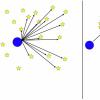Nigela Sativa? what dose?
https://www.medrxiv....0.30.20217364v4
Three hundred and thirteen patients - 210 moderate and 103 severe - underwent randomization from April 30 to July 29, 2020. Among these, 107 were assigned to HNS whereas 103 to placebo for moderate cases. For severe cases, 50 were given HNS and 53 were given placebos.
HNS resulted in ∼50% reduction in time taken to alleviate symptoms as compared to placebo (Moderate (4 versus 7 days) and severe (6 versus 13 days)
HNS also cleared the virus 4 days earlier than placebo group in moderate (6 versus 10 days) and severe cases (8.5 versus 12 days). HNS further led to a better clinical score on day 6 with normal activity resumption in 63.6% versus 10.9% among moderate cases and hospital discharge in 50% versus 2.8% in severe cases.
In severe cases, mortality rate was four-fold lower in HNS group than placebo. No HNS-related adverse effects were observed.
-
That is a huge difference, sounds a bit too good to be true? Honey @ 1 gram per kg + Nigela Sativa seeds @ 80mg per kg (over 2-3 daily doses) cleared the virus 3.5 - 4 days earlier than placebo, and cut duration of symptoms in half. But the study has not been published / reviewed yet.
-
Molecular docking studies have shown that some of its’ components such as nigelledine, α-hederin and thymoquinone have high affinity with several SARS-CoV-2 enzymes and proteins. In fact, they exhibit an energy complex score better than that of chloroquine, hydroxychloroquine and favipiravir – the drugs that have shown some anti-SARS-CoV-2 activity.
The beneficial effects of honey against different viruses including rubella virus, Herpes Simplex virus, Hepatitis virus, and Varicella-Zoster virus have been reported earlier.6 Moreover, in-silico molecular docking studies have shown that six flavonoid compounds from honey might inhibit severe acute respiratory syndrome coronavirus 2 (SARS-CoV-2) replication by binding to the viral 3-chymotrypsin-like-cysteine protease.9
The use of honey not only improves the proliferation of T and B lymphocytes, but also their phagocytic activity. It additionally inhibits the expression of vital pro-inflammatory cytokines such as interleukin (IL) 1 beta and IL-6 Thus, honey is postulated to play a pivotal role in fighting COVID-19.10 https://www.mdpi.com...3049/25/21/5017
Its’ use has shown to be more beneficial in upper respiratory tract infections than usual care especially in the context of cough frequency and severity.11
https://www.nice.org...of-the-evidence For general Cough (acute) -> "Honey significantly reduced the frequency and severity of cough at 1 day follow-up compared with placebo"
https://www.cochrane...4.pub4/full/es
Moderate quality evidence showed that honey may be better than 'no treatment' in reducing the frequency of cough (mean difference (MD) ‐1.05; 95% confidence interval (CI) ‐1.48 to ‐0.62; I2 statistic 23%; two studies, 154 participants). High quality evidence also suggests that honey may be better than placebo for reduction of cough frequency (
In vitro Nigella Sativa decreased replication of the virus. and chamomile did too https://link.springe...10.1007/s11033-014-3019-7
450mg x3 daily Nigella sativa oil significantly reduced viral load of hepatitis C virus https://www.ncbi.nlm...les/PMC3646144/ In the current study, N. sativa administration resulted in a significant decrease in viral load, with 16.67% of patients becoming seronegative, and 50% showing a significant decrease in the quantitative viral count.
Edited by CarlSagan, 06 July 2021 - 09:14 AM.
































 This topic is locked
This topic is locked
































